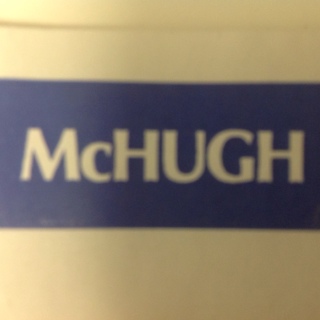Information
-
Date - Initials - Job Number(s)
-
Job Name
General Project Information
-
Safety Manager Assigned to this project:
-
Site hours of operation:
-
List Sub-Contractors and Competent Persons per sub:
-
Prepared by
-
Weather Conditions
-
Conducted on
-
Location
1. Planned / Scheduled work for the day:
-
1a. Pre-Task / Safety Briefing conducted prior to task?
-
1b. Work performed according to plan?
-
1c. Correct tools, materials and equipment to perform task?
-
Brief description of work performed today:
-
General job / work in progress photo's:
2. Ladders / Scaffold
-
2a. Unsafe or damaged ladders discarded, destroyed, and removed from site?
-
2b. Ladders correctly positioned?
-
2c. Ladders correctly secured?
-
2d. Is scaffold present on site?
-
2e. Was scaffolding erected according to plan, and by qualified person?
-
2f. Is inspection tag present and completed by competent person?
-
List responsible party for scaffold, type of scaffold, inspection frequency and competent person:
-
List corrective actions taken for this section:
3. Emergency Procedures
-
3a. Have emergency action plans been developed, distributed and communicated?
-
3b. Emergency procedures posted and available at site?
-
3c. Assembly area / gathering point established and communicated to all employees?
-
3d. First aid kits and equipment readily available and inspected?
-
3e. Are Hazcom/SDS present, available and up to date?
4. Personal Protective Equipment (PPE)
-
4a. Is required PPE supplied, utilized and maintained for the task?<br>
-
4b. Training in the safe use, maitenance and inspection of PPE?
-
List any specialized PPE required for this job?
5. Fall / Perimeter Protection
-
5a. Is fall prevention and protection plan developed, documented and communicated to all employees?
-
5b. Guardrail systems constructed and maintained according to code or other contractual requirments
-
5c. Holes greater than 2" covered, secured, and clearly marked?
-
5d. Fall arrest equipment provided & personnel trained?
-
5e. Fall exposures protected according to fall protection plan?
-
5f. Has any FALL-ARREST equipment been removed from service due to wear, defects, or fall experience?
-
List corrective actions taken for its section
6. Restricted Access Zones
-
6a. Are restricted access zones being used for Grinding, Window Installation, Look-Out, Hoisting Path, Excavation, etc.?
-
6b. Are Restricted Access Zones being erected and maintained where needed?
-
6c. Are barricades, flagging and signage in use?
7. Lifting Equipment
-
7a. Correct Hoisting Equipment chosen for task at hand? (Right machine for the task?)
-
7b. Hoisting plan developed and documented?
-
7c. All workers, and operators aware of hoisting loads over head and near power lines, practices and procedures according to company policy and OSHA Standards?
-
7d. Has any lifting equipment, including ropes, slings, chains been removed from service? If so, explain in comment section.
8. Work Environment
-
8a. Are work areas lighted according to standards?
-
8b. Is task lighting required and utilized in specific areas?
-
8c. Have house keeping deficiencies been identified and addressed?
-
8d. Are access and egress points provided to the site and all work areas?
-
List corrective actions taken for this section:
9. Fire Prevention and Protection
-
9a. Are flammable liquids and gases being stored correctly?
-
9b. Are flammable liquid containers in good working order and properly labeled?
-
9c. Are compressed gas cylinders properly stored, secured and in a upright position?
-
9d. Are Oxygen cylinders stored a minimum of 20 feet from any other combustible/flammable liquids or gases?
-
9e. Are fire extinguishers available in all work areas and regularly inspected?
10. Incidents, Accident, Injury, Near Miss
-
10a. Were any incidents, injuries, accidents or near miss' to report today?
-
Detailed information and narrative?
-
Photo's
-
10b. Have investigation reports been completed and submitted to required parties?
11. Electrical Hazards
-
11a. GFCI outlets inspected regularly?
-
11b. Electrical equipment placed away from water?
-
11c. Extension cords inspected prior to use?
-
11d. Electrical equipment at safe distance from flammables?
-
11e. Are all power tools inspected prior to use?
-
11f. Are electrical panels covered and clearly marked?
-
11g. Have any electrical cords or power tools been removed from service?
12. Lock Out/Tag Out: Hazardous Energy, Equipment or Other.
-
12a. Lock-out/tag-out (LOTO) for electrical or other hazardous equipment necessary? Please specify in detail section.
13. Excavations
-
13a. Will excavation work be performed today?
-
13b. Has an excavator Site Safety Program been submitted to Superintendent?
-
13c. Is there a competent person for excavating on site?
-
13d. Have all permits, Including McHugh Ground Disturbance Planning Form, been obtained and completed prior to digging?
-
13e. Have all surface encumbrances been identified and support planned?
-
13f. Have underground utilities been located and identified?
-
Have "DIG" numbers been acquired and current?
-
13g. Are 'BACK-UP'or other movement alarms in place and functioning properly?
-
13h. Have open excavations been protected against accidental entry?
-
13i. Have you confirmed if shoring requires design by a structural engineer?
-
13j. Is contaminated material being handled according to plan and disposed of properly in accordance with contractual and regulatory obligations?
-
13k. Is erosion control in place and being maintained? i.e: silt fence, drain screens, pump sock - filter bag, etc.
-
13m. Has the Competent Person performed tests as specified by OSHA, or used an engineering soils report, to determine classification? (A,B,C)
-
13n. Has all earthwork been inspected by the competent person prior to persons entering and after any rain or other event?
-
13o. Are precautionary measures in place for dewatering trenches / excavations?
-
13p. Is benching, sloping, shoring, or shielding (support system) required?
-
13r. Are documents for support system readily available?
-
13r. Is support system being inspected and maintained daily? (work days)
-
13s. Is any special insurance required, if so, has it been obtained? (RR Prospective, etc..)
-
13t. Are dust control and street sweeping equipment being used? ie... Water truck - Street sweeper
-
13u. Have potential atmospheric hazards been identified?
-
13v. Are access & egress devices in place according to standards (Ladders, Stairs, Ramps)?
-
List any corrective actions taken for this section:
14. Traffic Control
-
14a. Are safety restraint / seat belts in place and being used?
-
14b. Are 'BACK-UP' or other movement alarms in place and functioning?
-
14c. Is traffic control required, and in place according to Traffic Control Plan, MUTCD Standards and other governing bodies?
-
14d. Are all traffic control devices inspected, maintained, and kept in good visible condition?
-
List responsible party for traffic control devices, placement, and maintenance:
-
Are Flaggers required?
-
Are the flaggers certified according to City, State and OSHA standards?
-
Are the flaggers trained for the task at hand, and familiar with surrounding activities?
-
List any corrective actions taken for this section:
15. Administrative Procedures
-
15a. Procedure for incident reporting followed? (Incident, witness, injury, etc.)
-
15b. Has Company / Site Specific orientation-training been provided to workers, contractors, visitors?
-
15c. Correct permits acquired and filled out completely prior to task? (Hot Works, Confined Space etc)
-
15d. Site Safety Plan readily available?
-
15e. Supervision on site? (List Supt. & PM)
-
15f. Are there consultative arrangements in place? (Ability to get resolution to concerns)
-
15g. Routine inspections, monitoring, audits submitted regularly?
16. Tower & Mobile Cranes
-
16a. Is there a crane on site today?
-
16b. Are crane inspections current and copies available?
-
16c. Is the load chart readily available, legible, and being followed?
-
16d. Are signal persons and riggers qualified with proof readily available?
-
16e. Are all hook 'Safety Locks' in working order?
-
16f. Is crane positioned at the correct safe distance from over-head power lines?
-
16g. Is cribbing provided under outriggers for support and load dispersion?
-
16h. Is swing radius protected / barricaded to prevent entry?
-
16i. Are access ladders and steps protected and in good condition?
-
16j. Does the operator have correct licensing according to Job, City, & State requirements?
-
16k. Is all rigging properly tagged and regularly inspected?
-
Notes for this section of any special or precautionary actions taken:
17. Site exterior condition.
-
17a. Are all perimeter side walks clean?
-
17b. Is all public protection in place and in good visible / functional condition?
-
17c. Are all pedestrian pathways clean, clear of debris and clearly marked or identified?
-
17d. Is all signage for detoured walk ways in place? i.e. 'Sidewalk closed' 'use other side' 'over head work'
-
17e. Are canopies being used, if YES, have all hazards been eliminated? i.e.(falling debris/material, sharp edges, trip hazards)
-
17f. Are there any temporary walkways, if yes, are the ADA (American Disability Act) compliant?
-
List any corrective actions taken for this section:
18. Site Security
-
18a. Is the site fenced to prevent un-authorized entrance?
-
18b. Are equipment and job trucks locked at the end of shift to prevent un-authorized use?
-
18c. Are materials and equipment stored in a secure area to prevent theft?
-
18d. List any site security measures that are currently in place for the site, i.e. security cameras or night time security personnel.
19. Atmospheric: Lead, Asbestos, Silica
-
19a. Have potential atmospheric hazards been Identified? (If yes, please describe)<br>
-
19b.Has formal testing been performed prior to beginning of task to identify hazard and exposure levels?
-
19c. Has the hazard been remediated / abated, if yes, by whom? (please provide copies of completion reports)
-
19d. Are employee's provided with appropriate PPE to be protected from exposure to hazard?
-
19e. Will respirators be required as part of PPE for the task at hand?
-
Has employee been Medically Cleared & F.I.T Tested to utilize respirator?
-
Has employee been assigned a respirator for task at hand?
-
Has the employee been formally trained to use and clean Respirator correctly?
-
Are F.I.T test's & training records current and accessible?
-
Has employee been assigned a respirator for task at hand?
-
19f. Is equipment on site to monitor potential atmospheric hazards?
-
List corrective actions taken for this section:
20. General Duty Clause, Miscellaneous Findings & Other Safety Observations
-
20a. Were observations or miscellaneous findings that pose a potential hazard discovered during audit process?
-
Brief description & photo:
21. Observational Notes:
-
21a. List additional notes and observations of concern generated by other activities unrelated to project:
-
Add media
Sign Off
-
Auditor's signature









